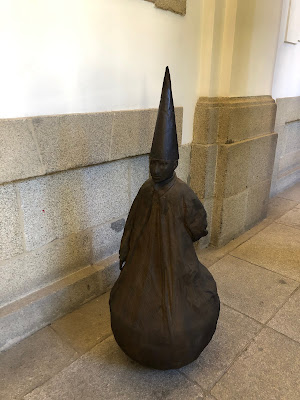Two things about bigotry that don’t get said nearly often enough:
First, it’s a kind of stupidity. A low, dank and nauseating sub-cellar of ignorance. The world just doesn’t work the way haters seem to think it does. Assuming their bile is sincere, and not just empty words that bad people throw at others, lashing out instinctively.
The kerfuffle over Kanye West — whoops, “Ye,” he changed his name and might want to consider doing so again — quickly devolved into an exercise in accounting, keeping track of how badly his antisemitic spew hurt his sprawling business empire. Which meant that not enough consideration was given to his original offending remarks, such as the suggestion that rival singer, producer and lifestyle tycoon Sean “Diddy” Combs is somehow “controlled” by the Jews, followed by Ye’s threat to go “DEATHCON 3 on JEWISH PEOPLE.”
What does that second part even mean? The funny thing — funny sad, not funny funny — is that Ye probably meant “DEFCON,” a state of military readiness, and it was just an illiterate gaffe. An unfortunate slip, since wishing death on people, particularly Jews, tends to catch attention in our mass shooting age. The worst antisemitic massacre in American history, 11 worshippers slaughtered in a synagogue in Pittsburgh, happened in 2018.
We need to notice, because our political climate, at home and globally, increasingly takes its cue from antisemitism’s embrace of utter lies, from the blood libel to the “Protocols of the Elders of Zion” to this, which showed up in my email inbox Monday:
“All INTELLIGENCE AGENCIES in America and Europe, now know that the disastrous [WTC 911] attack was planned and realized by the American CIA and Mossad with the help of the Zionist world, to place the blame on Arab countries and to persuade the Western powers to intervene in Iraq and Afghanistan ...”
That reasoning is the exact same logic that Alex Jones used to declare Sandy Hook was fake — you don’t like the result, in Sandy Hook’s case another stark example of the need for America to do better dealing with guns. So you pretend that result was someone’s intentional goal all along, as part of a plot. It’s like blaming ice cream for causing hot summer days.
“All INTELLIGENCE AGENCIES in America and Europe, now know that the disastrous [WTC 911] attack was planned and realized by the American CIA and Mossad with the help of the Zionist world, to place the blame on Arab countries and to persuade the Western powers to intervene in Iraq and Afghanistan ...”
That reasoning is the exact same logic that Alex Jones used to declare Sandy Hook was fake — you don’t like the result, in Sandy Hook’s case another stark example of the need for America to do better dealing with guns. So you pretend that result was someone’s intentional goal all along, as part of a plot. It’s like blaming ice cream for causing hot summer days.
To continue reading, click here.







